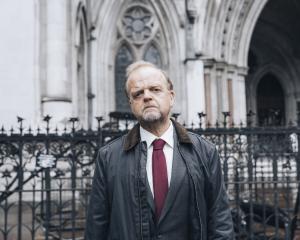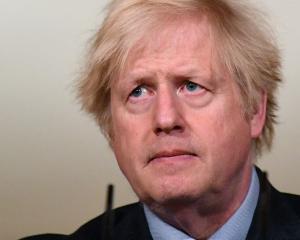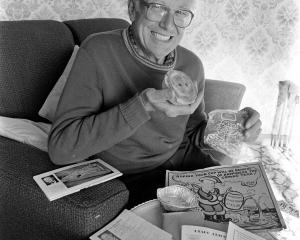Where do facts end and opinions begin? Dr John Williams, who recently conducted a survey on the proposed Otago Stadium, takes issue with the questionnaire's critics.
Recently I conducted a survey asking Dunedin residents whether they supported public funding of the proposed Otago Stadium. This survey has been "dismissed" by Carisbrook Stadium Trust Malcolm Farry and Mayor Peter Chin.
They are, of course, entitled to their opinions.
I, however, am more interested in the facts of the matter.
The Otago Stadium debate can be characterised by the disagreement not so much over general principles or ideological positions, but rather over the facts and figures relating to the costs and benefits of the proposal.
As reported by the ODT (17.1.09), Mayor Peter Chin dismissed the survey as not being useful to his council because the DCC makes its decisions based on "facts, not opinions".
As a lawyer, Mr Chin should be familiar with the definitions of "fact" and "opinion".
When we were constructing the questionnaire we attempted to involve parties from the Carisbrook Stadium Trust, Stop the Stadium, the ORC and the DCC.
In the end, only two DCC councillors, Bev Butler (president of Stop the Stadium), and an unofficial representative of the Carisbrook Stadium Trust attended the meeting where we made the major decisions on planning the survey, including the phrasing of the main question.
Whenever we attempted to include in our questionnaire a figure related to the costs or benefits of the stadium, we could not get agreement from all parties.
The only thing that all parties could agree upon was that the public/private funding split would be approximately 75/25.
Consequently, this was the only fact that was included in the introduction to the survey's main question.
At this stage, I would like to ask the DCC and the ORC what, precisely, are the facts relating to the costs and benefits of the stadium?
If they are known, please supply the calculated Net Present Value of the public investment in the stadium, and hopefully we can end the debate once and for all.
It seems clear that there are no facts, and there can be no facts, relating to the costs or benefits of the stadium, because these costs and benefits will occur in the future.
Facts are not available, only projections, predictions and forecasts. All statements about the future are based on assumptions.
All assumptions, and the evaluation of whether they are reasonable or not, are someone's opinion.
It is instructive to reflect on recent events in the financial world to see how wrong assumptions about the future can be, even when they are made by people whose livelihoods depend on their accuracy.
To say that the DCC will make a decision on whether to fund the stadium based on "facts and not opinions", while it makes a pithy sound-bite, is plainly untrue by any reasonable definition of the word "fact".
Can we take this statement literally? Or perhaps Mayor Chin was exercising poetic licence? Or political licence?
The lack of facts in the debate relate to Malcolm Farry's criticism that some people may have answered the question thinking they would have to pay $1000 per annum.
This is absolutely true.
Others may have answered thinking that they will have to pay nothing, or reap a net personal benefit.
What basis do people have to judge their personal costs and benefits that will accrue as a result of the stadium, and the costs and benefits that will accrue to their wider community?
Is it reasonable to ask people to form an opinion in the absence of information?
Perhaps we should be asking the Dunedin city councillors who sit on the finance and strategy committee that question?
After they have made their decision, could they publish the facts that they based it on please?And please, before they do so, could someone ensure that they know the meaning of the word "fact"?
It seems we can't trust the lawyers for that: how about someone from the Department of Philosophy at the University of Otago?
Now setting aside the question of facts, I would like to address the implied attack on either my character or professional competence (or both) made by Mr Farry.
Mr Farry apparently said (ODT 17.1.09) that the survey was "loaded" and that it was "like asking people if they wanted to pay more tax to central government".
The second of those statements is true.
The question was like that, because that is exactly what the Carisbrook Stadium Trust is asking people to do, except that we are being asked to pay more tax to local, rather than central, government.
But the first statement is more important, I would like now to address the claim that the question was loaded. "Loaded" means deliberately designed to induce a response one way or another.
Although I did not intend to do this, it is entirely possible that I may have done so by accident.
If so, I would like to learn from my mistake, especially in order to avoid committing a similar error in future.
After all, I teach this stuff.
So could Mr Farry explain how, exactly, the phrasing of the question would do this, and offer some proof (as opposed to mere assertion) that will enable myself and the readers of the ODT to evaluate the credibility of his claim?
Here at the University of Otago we are a research-led institution.
We value facts, principled opinion, logical argument and reasoned debate.
The hallmark of such activity is the ability to admit that one is wrong and thereby to learn.
Both facts and opinion are important, but forgive me if I choose to leave the spin to the lawyers and politicians.
-Dr John Williams is a lecturer in the department of marketing at the University of Otago.












